The rap game is in an unceasing flux of creativity; flows are tweaked or swapped for new ones and production trends never remain static. Perhaps the most dispensable is the artist’s own image, which thrives on redefinition-image and the music become practically one and the same. There was an emphasis on this since the genre’s beginning, as it was a matter of proving yourself and looking good while doing it, with the essence of rap residing in steezy domination. Currently, social media intensely fosters this; founded inconvenience and immediacy, no other time in rap history have the floodgates been open so wide for easy, impulsive targeting.
Lil B is no stranger to it. His active social media presence and oddball approach to rap have garnered a fair number of critics, though others would say they are jealous of the number of Tiktok followers he has. Saying this though, this could potentially work in Lil B’s favour, as the more beef he has with other artists, the more people will hear about him and it may be a chance to get instagram followers. The more people follow his activity, the more likely Lil B is going to continue doing this.
The Game has called him wack, Joey Bada$$ and the boys at Pro Era told him not to “quit his day job,” and, unsurprisingly, hot-head Joe Budden ridiculed the “based” mentality on several occasions. But other than those conflicts (which have now been duly squashed) Lil B was more or less a neutral figure in the rap community. Even his frequent trolling came off more winsome than hurtful, like a child annoying someone until they played with them. After all his “based” philosophy revolves around good faith and the individual:
Based means being yourself. Not being scared of what people think about you. Not being afraid to do what you wanna do. Being positive. When I was younger, based was a negative term that meant like dopehead, or basehead. People used to make fun of me… They’d use it as a negative. And what I did was turn that negative into a positive. I started embracing it like, “Yeah, I’m based.” I made it mine. I embedded it in my head. Based is positive.
That positivity was birthed from conflict. This was the mainstay of Lil B’s entire aura.
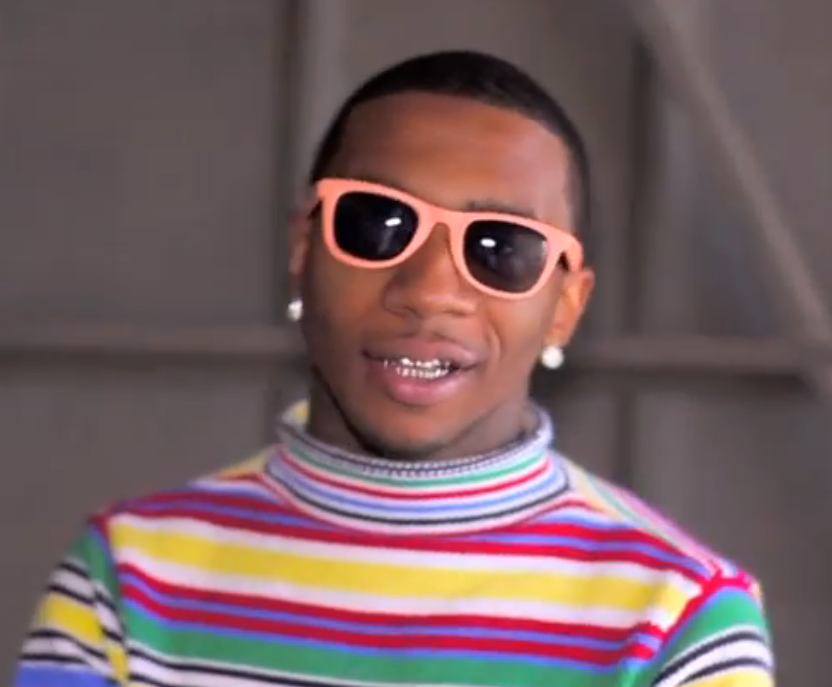
This past week, Lil B was jumped by a gaggle of A Boogie wit da Hoodie’s homies, but this was no online quarrel, rather a full-fledged physical confrontation. They quite literally stomped him out, all because Lil B had made a remark about A Boogie’s music. No, not about his girl, not about a family member. His music. Now, whatever the remark was, however negative or flippant, is a beating justified? A 10-on-one brawl? If you watch the video, which is appalling, I think you too would question if such severity was warranted. And this is not the first time he was unjustly assaulted; way back in 2010, he was set up to get sucker-punched in a faux interview. He reflected on it coolly and maturely though, telling Complex, “My lip is fucked up, you feel me? It’s a learning experience, though. It happens to the best of them.” But this instance drastically paled in comparison to the A Boogie altercation.
Considering all the brutality, it’s amazing that Lil B got up, walked away, and shook it off. What could’ve happened next was anybody’s guess. If rap history were to repeat itself, Lil B could have very well retaliated, prompting around two. Yet afterward, he got up on stage and let his fans know the deal: “A Boogie and his whole crew just jumped me in the back . . . and beat me up in the back man, that shit crazy.” His crowd roars back in equal shock. He continues, “But I’m gonna tell y’all like this, It’s all love, I don’t promote violence, I’m never with the violence.” What’s more is, Lil B was going to go on with the show, but couldn’t because of his equipment being stolen too.
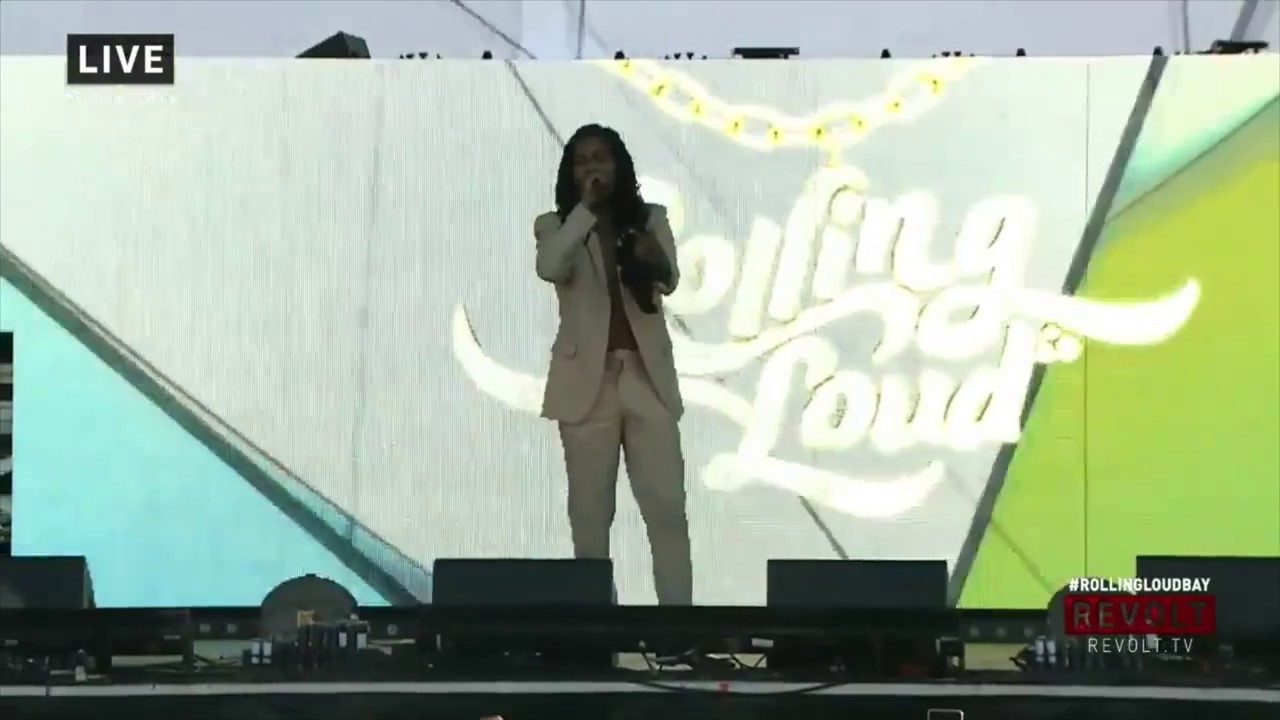
Thank you for the explanation Based God
Lil B could’ve engaged in an all-out Twitter-war, rallying up his crew and “based” loyalists to commence a battle of the coasts, and more bloodshed could’ve been called for. It wouldn’t have been the first time. In 1995, tensions were at an all-time high between the two coasts and the feud between Bad Boy and Death Row Records was extending dangerously beyond the boundaries of music. By 1997, both of the labels respective all-stars, Notorious B.I.G. and 2Pac, were killed in drive-by shootings, and in the aftermath of these deaths, “Hip Hop Peace Summits” were administered in an attempt to remedy the void left in music’s cultural atmosphere, hopefully preventing future clashes from ever reaching such catastrophe. It was to little avail.
Competition being so firmly ingrained, beef is and always will be a cornerstone of the genre. It would continue to persist well into the 21st century, and with gangsta rap and southern hip hop dominating the scene, the rap milieu wasn’t going to see a decrease in violent ends any time soon. Literal shots were fired at The Game and his posse after his dismissal from G-Unit, and Gucci Mane found a $10,000 bounty placed on his chain by Young Jeezy over a song credit dispute. The violence fed into the lyrics and the controversy fed into sales. Good business ethic and even better marketing were at play: it was one thing to rap about it, it was another thing to be about it. To fans, what was more gangster than that?
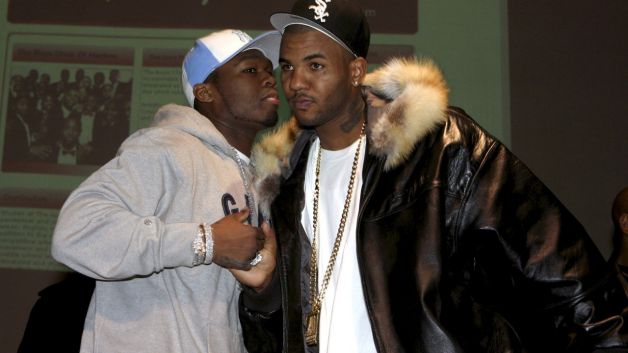
OK, we’re cool now, but you’re still not allowed in G-Unit
However, as times changed, so did the arsenal at hand. With the onset of the 2010s, a new weapon outside of lyricism and gunplay emerged: Social Media. With the advent of Twitter, Instagram, and Snapchat, shade could be thrown wherever and whenever with just the click of a mouse and with more than just your fan-base or radio listeners at attention.
How Twitter came to be a designated “beefing” platform checks out: your tweets cut out at 140 characters (now 280 characters), you had to be quick, concise, and most importantly, compelling with your message. It was a rapper’s delight (or gangster’s paradise), as epigrammatic wordplay was at the core of the art form. Twitter also bided some time, easing the necessity to head into the studio immediately to churn out a diss track. But the art of rap dissing isn’t dead, in fact, it’s far from it; social media has only compounded it.
In 2015, the Meek Mill and Drake feud had come to head. Mill was disappointed in Drake’s apparent use of ghostwriters and had censured the rapper in a series of tweets. Drake never confirmed or denied the rumour himself (his producer 40, however, did deny it), instead of responding in traditional rap etiquette. “Charged Up,” Drake’s first diss track, was just a primer for the knockout that was “Back to Back.” But more significant than the searing lyrics (“a world tour or your girl’s tour?“) was its nod to Twitter (“trigger fingers turn to Twitter fingers“) and by extension, social media in general. It actively recognized the role it plays in the rap universe.
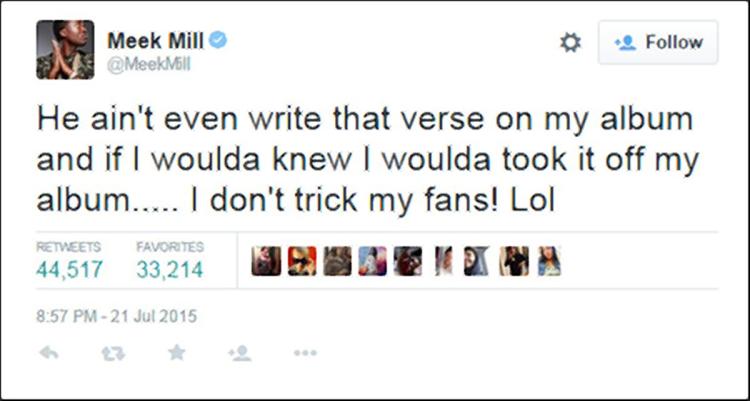
Ironically, Meek Mill ghostweets for Donald Trump
The entire idea of a social network is founded on the image. Facebook, Instagram, Twitter, Snapchat-they are outlets to define it, express it, modify it, share it-just the same as what rap or any other art form can do. Unfortunately, this amplification of the image comes with amplification of reaction. Especially with today’s new school rappers, commonly dubbed as SoundCloud rappers, as their popularity can be attributed to their new take on the genre as much as it could be to their curated image on social media platforms. They’re so tightly bound, it’s almost impossible to imagine them as actual humans living outside of their online profile.
New school posterchild XXXTentacion made extensive use of social media following a quarrel with Rob Stone and his crew. You might remember the viral video of X getting sucked-punched at his own show earlier this year. Death threats, profanity, the whole nine yards were displayed on both Instagram and Twitter following the confrontation. X even alluded to possibly being involved with a stabbing of one of an ostensible Stone affiliate. It’s clear social media’s impact on rap diplomacy is unmistakable.
21 Savage and Tyga got in a spat over Kylie Jenner on both Twitter and Instagram as well. If you saw this argument online and want to show more people that you’re on team Kylie, Instagram may be a good place to start. Maybe through a fan account perhaps? If so, the idea of wanting to get free instagram followers may be one worth looking into. We’re sure Kylie will appreaciate all the support she gets!
Soulja Boy issued death threats to Lil Yachty after a dispute over pictures posted online with former flames, and Kodak Black made sure Lil Wayne knew how he felt about him in a Instagram live session. Social media more often than not can be a haven for socially accepted pettiness and rivalry, with reach on a global level, and that’s what makes it so dangerous. Everyone is watching. All of this sharing online is sure to boost instagram followers on their accounts though.
Our current President, Donald Trump, understands this power and makes frequent use of it, but by beefing with other country’s leaders, not rappers (actually I stand corrected, he has beefed with Snoop Dogg). Other than the stakes involved, the politics of war and rap are not all that different from each other. Consider that the rap game in itself makes for an authentic microcosm of world affairs: while collaboration and neutrality is desired, with disrespecting of territories comes retaliation. The line separating conversation from controversy is so fine, overstepping is inevitable. Ideally, just as foreign relations should never lead to conflict, and stay within the spirit of humanity, rap competition should never reach a point of physical violence, staying within the spirit of music. With gang culture being so strongly embedded in hip hop, and status being so strongly embedded in both, it’s no surprise eminence and social media make for a deadly concoction. As Kanye West once said, ” . . . the people highest up got the lowest self-esteem.”
In his 1946 work “Existentialism is a Humanism,” the philosopher Jean-Paul Sartre stated that with man being responsible for himself, he is by extension responsible for all of man. How he acts determines how the rest of civilization acts. Oversimplifying: treat others the way you’d want to be treated. It’s a hefty weight that not all of us can manage, but Lil B can and does. Maybe he didn’t from the start when he drove in stolen Lexuses-no one’s perfect. But he does now. His “based” philosophy resides in the individual and the effect they have on those around them. If one projects positivity, they legislate positivity. It’s important to note an interview with Complex from 2010, where Lil B defined the difference between a rapper and an MC:
“. . . I know what true rap is. I know what undeniable rap is . . . I know what it is because I’m an MC. Motherfuckers forget, I’m not a rapper. KRS-One said it: I’m an MC. An MC is for the people. An MC is everything, man.”
Here Lil B declares his assuming of a role larger than musician and his recognition of the weight on his shoulders. He is a messiah of sorts-a voice of reason, a minister of goodness. Like most artists in the past decade, Lil B’s career was greatly bolstered by the internet; in many ways, the internet birthed him and the two cannot not function without the other. It would stand to reason that he is directly familiar, and in service of, the internet’s implications and power. Lil B’s decision to not retaliate to his jumping is bigger than the rap game. It’s vital on a global scale.
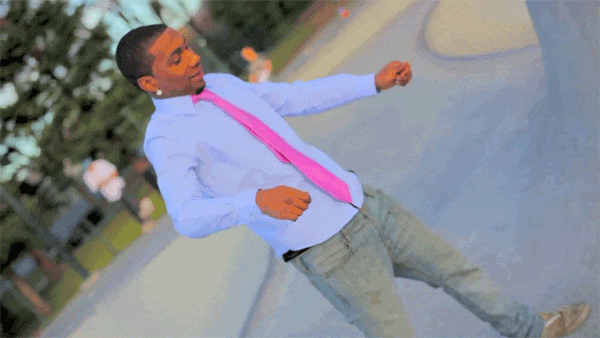
Lil B cooking up some positivity
There’s a lot going on right now-gross sexual misconduct across every industry, riotous race relations, political polarity at a notable high, surging gun violence. With such pain comes anger, frustration and even hatred. But rather than letting the latter get the best of you, Lil B suggests to curb it while it’s ahead, rise out of it, and turn the negative into a positive. It starts with yourself and your personal welfare: you have the control and the power.
Lil B used his platform, as an artist on a stage and as a living meme, to squash hate and vengeance outright. Everyone has a phone with a camera, and as sure as he knew his getting jumped would be on Snapchat or Instagram, he could rest assured knowing his sermon would be right up there alongside it. Lil B took advantage of the opportunity and made an example of himself. He extended his good nature to cyberspace: “Just because someone hurts you does not mean you need to retaliate! I love the people who jumped me I mean that stay positive nsafe.” There will be those who shout “pussy,” or “coward,” and those who demand tit-for-tat, but in the grand scheme of things, what will stand as the greatest of the actions, will be inaction out of “love, forgiveness and positivity.”
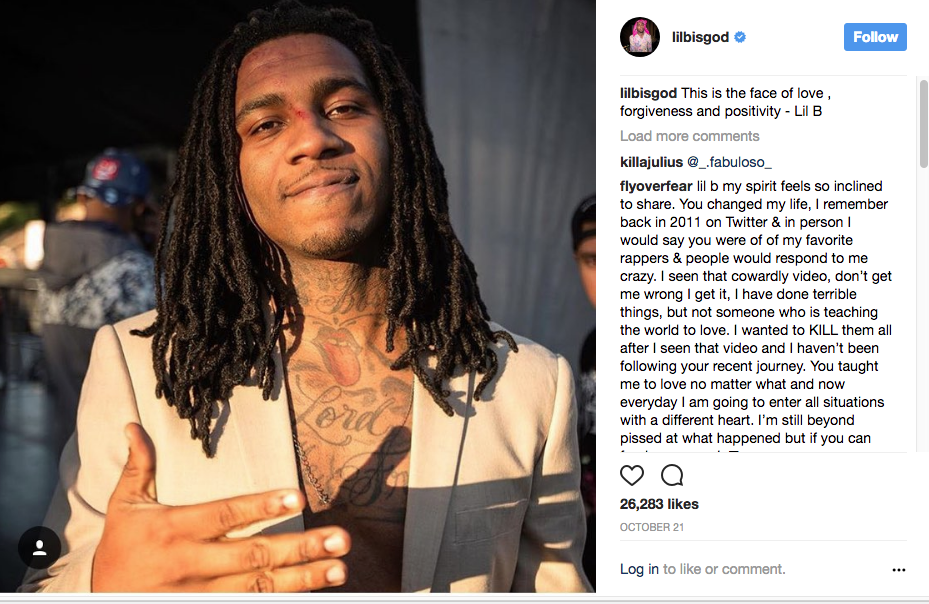
Also, Lil B for President, 2020.
